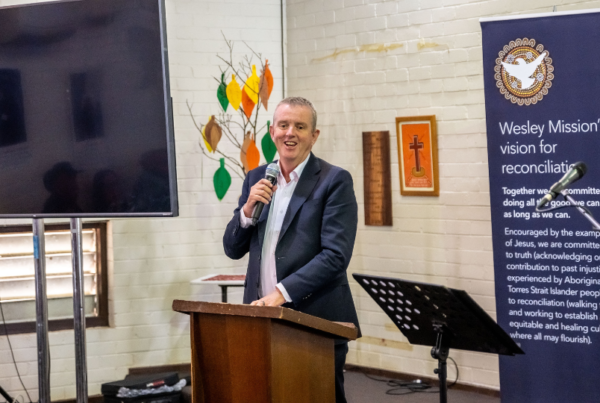One of history’s most beautiful, if haunting poems is around three millennia old. Written by a king named Solomon, a leader with extraordinary wisdom, with bracing honesty it recognises the ebb and the flow, the give and take – the seasons traversed by every human life. He begins:
There is a time for everything,
and a season for every activity under the heavens:
a time to be born and a time to die.
(Ecclesiastes 3:1-2)
He goes on to say that there is a ‘time to mourn and a time to dance’ (v4). Last Sunday (October 15) I was experiencing a heaviness of heart, a deep sadness in the wake of the Voice referendum result, recognising the deep disappointment and sorrow so many Aboriginal and Torres Strait Islander people were experiencing, and continue to experience. In my own faltering, failing and incomplete ways, I am choosing to mourn with those who mourn.
I do not want to debate the merits or otherwise of the referendum proposal that was put forward or analyse the various campaigns. There’s enough of that elsewhere. I also know and respect that, reflecting the diversity of our Wesley Mission family and the broader community, some of us will have voted ‘yes’, and many others ‘no’ – for many and varied reasons. Having listened to the voice of our Aboriginal and Torres Strait Islander staff, Wesley Mission supported the broader Uniting Church’s support for the ‘Yes’ position.
What I lament, what I weep over is the nastiness, the lack of generosity and the misinformation that characterised too much of the debate – and the impact that this has had on First Nations leaders and communities. The barely masked racism I saw at times on my (un)social media feed was repulsive. We can, and we must do better.
Solomon also says there’s a ‘time to tear down and to build.’ (v3). Earlier this year, Wesley Mission launched our first Innovate Reconciliation Action Plan (RAP). The path to true reconciliation requires us to ‘tear down’ the false narratives, unjust systems and processes and prejudicial attitudes that stand in our way. Wesley Mission’s commitment to reconciliation and truth-telling was not predicated on the outcome of the referendum. If anything, the result of the referendum has highlighted the importance of truth-telling – better understanding the truth of the past (including anything that Wesley Mission may have done that contributed in any way to past injustices). Understanding and coming to terms with the truth is essential for the process of reconciliation.
The path to true reconciliation also requires us to ‘build’ new ways of walking together to ensure that ‘Aboriginal and Torres Strait Islander peoples are restored in dignity, respect and opportunity.’ (Wesley Mission RAP). This building process will lead to one of the most significant cultural changes in Wesley Mission’s 200-year-old history. It will require ‘soft hearts’ that are moved into compassionate acts of solidarity. It will require sharp minds that vigorously pursue justice. It will require hard feet, especially of those of us who are not Aboriginal or Torres Strait Islander, as we persevere – and persevere again for true reconciliation. Similarly, it will require open handed humility of we ‘second peoples’ – a readiness to listen and to learn and grow. And act.
Solomon says there’s a time to ‘mourn and a time to dance.’ I look forward to the day when our mourning turns to dancing, when reconciliation and justice are woven into the spiritual fabric of our nation. I am, we are committed to listening, learning, growing and acting – for as long as it takes – as we play our part in seeing that day come.
Every blessing,

CEO and Superintendent, Wesley Mission






секс частное фото калининград хто буде сосать хуй секс знакомства с девушками из
владикавказа письки сикают в туалете
achat de médicaments en France Bioindustria González
Catán Medikamente in Mexiko-Stadt erhältlich
Hiya very cool blog!! Guy .. Beautiful .. Wonderful .. I’ll
bookmark your website and take the feeds additionally? I’m glad to find so many helpful
info right here in the submit, we’d like
work out more strategies on this regard, thanks for sharing.
. . . . .